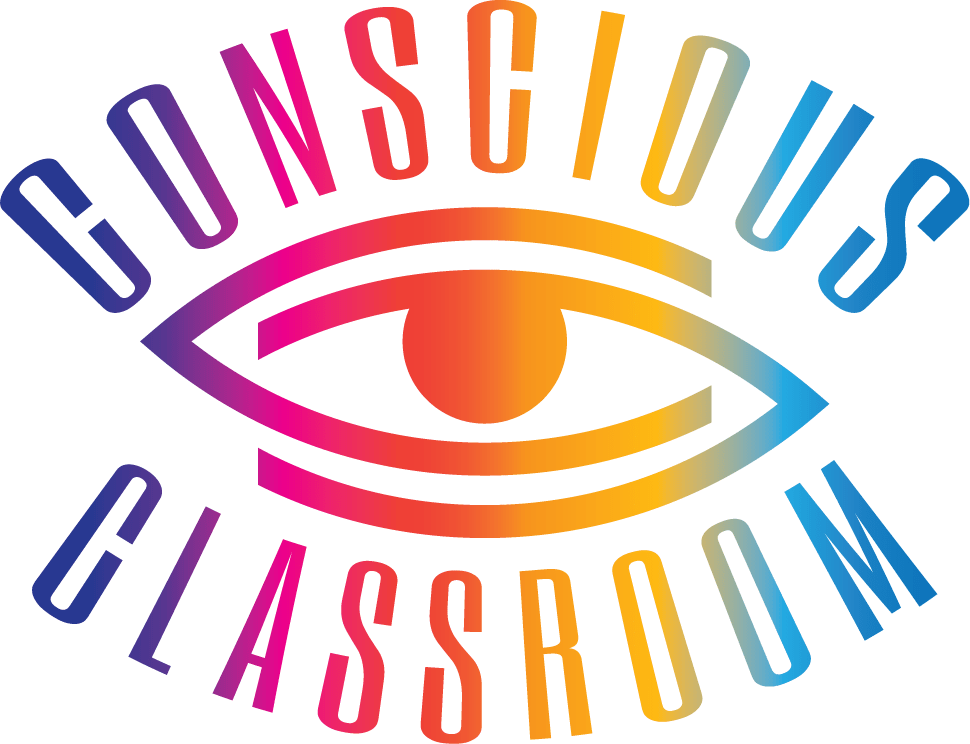MODULE 7
Neurotransmitters
Important Messengers
As you are reading this, minding your own business, innumerable chemical reactions are occurring inside your brain. These reactions transport very important messages! The nerve cells inside your brain called neurons are responsible for sending these messages. Your growth and development and your feelings of joy, sleep, and even love are dependent on the information being delivered.
Join us for a Mindfulness and Movement Practice for the History of Yoga: 43 mins
How does this work? Basically, electrical signals travel away from neurons through a part of the neuron called the axon. This signals the release of neurotransmitters, which send messages causing specific responses to occur in another neuron. Neurotransmitters can influence a neuron in three different ways: modulatory, inhibitory, and excitatory. How they work can be complicated to understand, but here’s some basic information.
Hormones
Fun Fact: Adrenaline and dopamine are two hormones that also act as neurotransmitters!
John Lennon, Paul Mccartney, Ringo Starr and George Harrison of The Beatles with their guru the Maharishi in 1967.

DOPAMINE:
The brain’s reward system, dopamine, stimulates feelings of joy and pleasure when we do things that feel good, like listening to music and exercising. It monitors our movement and the emotional response to that movement. It also helps us wake up in the morning. Simple functioning like typing or driving are all influenced by dopamine. When flow state (Module 6: You and Your Brain) is first entered, dopmaine floods your brain.
On the flip side, addictive behaviors like gaming, scrolling, or compulsive shopping also trigger the release of dopamine. One the release wears off, a person can be left feeling worse than before. Could addictive behavior be related to depression and anxiety in your life? Only you know. Notice. Pay attention. Balance is key for both physical and mental wellness. Mindfulness is an important practice to keep dopamine levels balanced.
SEROTONIN:
Pro Tip: Protein helps to restore serotonin levels in your gut.
MELATONIN:
A hormone that supports our sleep cycle (the rest and digest phase of the nervous system) and our waking cycle (when we are ready to get up and go). Serotonin and melatonin work closely together. When we move with nature, we are in tune with our patterns of wake and sleep. Melatonin naturally occurs in most bodies and is released by the pineal gland when we are getting ready to sleep. Lack of melatonin may cause late nights, headaches, dizziness, or unease in the body. Routinely practicing awareness using your senses and the elements (Module 10: Senses and Elements) at nightfall can help you tune into a healthy sleep cycle.
ACETYLCHOLINE:
Fun Fact: Acetylcholine was the first neurotransmitter discovered in the body! Are there certain yoga poses that cause a spark of energy in your body? Which poses feel the best for your body?
OXYTOCIN:
Referred to as the “happy hormone” or the “love hormone.” The brain makes oxytocin in the hypothalamus gland, and it’s released into the body via the pituitary gland. The bummer about the chemical charge of the “love hormone” is that it’s not long-lasting. Oxytocin levels are at their highest in the beginning of a romantic relationship. It helps build relationships with the people close to us and supports many of our reproductive bodily functions. It allows muscles to contract and expand during reproduction and childbirth and signals mammary glands to release milk after the child is born. However, being intimate in simple (non-sexual) ways also increases levels of the bonding hormone. A six-second hug is considered deep-pressure therapy that significantly lowers levels of the stress hormone cortisol. Having meaningful conversations, listening to music, and petting animals are other ways to feel the “happy hormone.”
CORTISOL:
This hormone is stimulated in the brain through the hypothalamus and triggered by the adrenal glands (attached to the kidneys.) Cortisol can support your mood, motivation, and fear. It’s known as the body’s natural alarm system. When we feel stressed, our heart rate goes up, our blood pressure increases, and our digestive system pauses. We can experience an upset stomach, sleeplessness, butterflies, or sweating. The digestive system and the immune system can shut down when we’re overwhelmed and there is too much cortisol moving through the body. When constant cortisol releases become a way of living, it starts to take a huge toll on the autonomic nervous system, specifically the sympathetic nervous system (Fight or Flight response). How are you managing the stress in your life these days?
Take a Minute
Set a timer for 5 minutes and write your answers to the following questions.
1. If dopamine is the “feel good” neurotransmitter, can you recognize what it feels like when it’s released? Would the release of dopamine trigger faster or slower brain activity? See the Brain Waves section at the end of Module 6: Me and My Brain.
List 3 simple activities you participate in that stimulate dopamine. What (if any) addictive behaviors like scrolling, eating sugar, gaming, or even compulsive shopping would you like to stop, but the dopamine feels too good?
2. What do you crave? Regardless if it’s sugar, chocolate, or coffee, notice how you feel after indulging in your cravings. Challenge yourself to add at least one serving of serotonin-friendly foods like probiotics (yogurt or kefir, that contain good bacteria) and one serving of “prebiotic” foods, such as fiber, garlic, onion, and asparagus to your daily diet. Notice how food choices have an effect on your mood or mental state.
3. Do you have a bedtime routine? Support melatonin production by lessening distractions before bed. Check the Brain Waves section at the end of Module 6: Me and My Brain, which brain state releases melatonin? What can you do tonight to prepare your body for sleep? Try one of the breathwork practices from Module 1: Breathwork or the visualization meditation from Module 5: Mindfulness and Meditation. Guided meditations are also available to listen to on your phone before bed.
Notice how you feel when you wake up. If you’re feeling sluggish try getting into the Down Dog pose for just a minute. Feel the blood rushing into your head and waking up your brain!
4. What scares you? Are you into horror movies? Do you like the feeling of being spooked? Do you like climbing new heights, riding, or skiing fast? Do you like the rush of adrenaline after doing something risky or exhilarating? Which part of the brain is stimulated with the release of adrenaline—the reptilian brain, mammalian brain, or prefrontal cortex? Notice how often you participate in risky behavior (even conflict) because of the adrenaline high. Are they healthy risks or harmful? What are the consequences of risk-taking? Is it broken bones or broken relationships? One of the Yamas on the Eight-Limbed Path of Yoga mentions brahmacharya or moderation. How do you keep your levels of adrenaline moderated and balanced?
5. If the chemical charge of the “love hormone,” oxytocin, is not long-lasting and levels of it are at their highest in the beginning of a romantic relationship, in what non-sexual intimate ways can you feel the “happy hormone?” Which of these activities will you prioritize to feel the love? Listen to music. Pet an animal. Spend quality time with friends. Have meaningful conversations. Cook and eat with someone you care about. Which part of the brain is stimulated with the release of oxytocin—the reptilian brain, mammalian brain, or prefrontal cortex?
GAMMA-AMNIOBUTYRIC ACID (GABA):
A main inhibitory neurotransmitter; in other words, it helps your brain slow down. Without GABA, the brain would be on all the time. GABA blocks signals in the brain and the central nervous system. It supports our peripheral nervous system through heart rate and blood pressure, and it gives us the ability to relax and fall asleep. Pro Tip: Reducing your exposure to devices that emit high amounts of blue light (laptop screens, flat-screen televisions, cell phones, and tablets) can support GABA production in your brain. Breath and meditation practices both help to boost GABA flow in the body, encouraging rest and digestion.
GLUTAMATE:
An amino acid found in food. It’s an excitatory neurotransmitter, meaning it stimulates the neuron to fire. Glutamate is present in both the gut and the central nervous system. The brain uses glutamate to support pathways between neurons that help expand learning and memory. To ensure glutamate levels remain low, only small amounts are released to excite neighboring brain cells.
ADRENALINE (EPINEPHRINE):
You know the feeling of adrenaline if you have ever done something that has scared you. When the body is under stress, or its fight or flight system is activated, nerves trigger the production of adrenaline. Adrenaline is produced through the adrenal glands on top of the kidneys, flooding the body with oxygen for the muscles and boosting the heart rate. The brain and the body are working to respond to stressful circumstances and keep you safe.
NOREPINEPHRINE:
Together with adrenaline, it increases our heart rate and blood flow. It helps the body break down fat, and it can increase sugar levels to stabilize the body’s energy. Norepinephrine can lead to euphoric feelings of happiness but can also swing to a state of panic and disconnection. Balanced levels of norepinephrine help maintain our sleep/wake cycles, attention, focus, and memory. Emotions and feelings can be identified and witnessed when there are proper levels of norepinephrine moving in our bodies.
Love is the strongest medicine.
It is more powerful than eletricity.
Neurotransmitters influence our emotions, growth, and development. Discover how dopamine, the “feel-good” neurotransmitter keeps you going back for more when it comes to healthy behaviors like listening to music or exercising. Knowing it’s the same for addictive behaviors can help you kick bad habits. Learn more about increasing serotonin levels in your gut with the food you eat, therefore promoting more feelings of joy, love, and confidence. Find out how the “love hormone,” oxytocin is released, and stress hormones are decreased by hugging for 6 seconds. Learn the benefits of supporting your production of melatonin by lessening distractions before bed. Are you into horror movies and rushes of adrenaline? Evaluate if your thrill-seeking is harmful or healthy?

